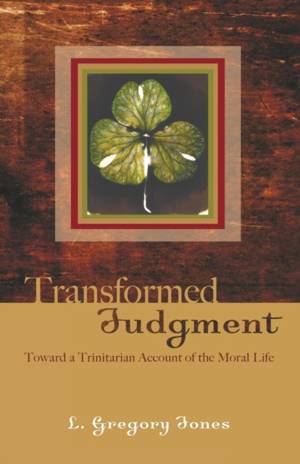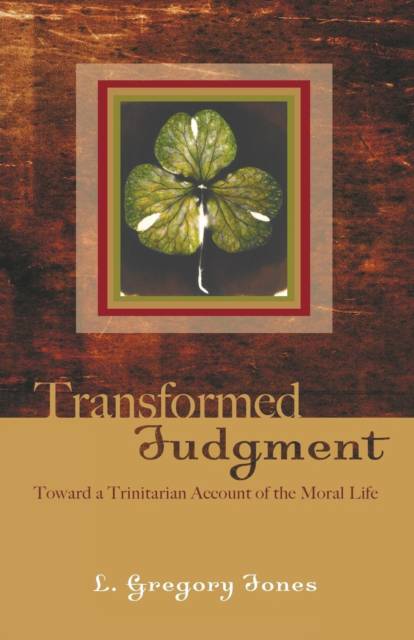
En raison d'une grêve chez bpost, votre commande pourrait être retardée. Vous avez besoin d’un livre rapidement ? Nos magasins vous accueillent à bras ouverts !
- Retrait gratuit dans votre magasin Club
- 7.000.000 titres dans notre catalogue
- Payer en toute sécurité
- Toujours un magasin près de chez vous
En raison de la grêve chez bpost, votre commande pourrait être retardée. Vous avez besoin d’un livre rapidement ? Nos magasins vous accueillent à bras ouverts !
- Retrait gratuit dans votre magasin Club
- 7.000.0000 titres dans notre catalogue
- Payer en toute sécurité
- Toujours un magasin près de chez vous
Description
Over the past decade prominent philosophers and theologians have returned the virtues to a significant place in moral reflection. Transformed Judgment contributes to the growing literature by arguing that the most coherent account of moral judgment is one grounded in, and lived in the presence of, the Triune God. L. Gregory Jones suggests that while there has been considerable discussion of the virtues and the activity of moral judgment, the discussion has tended to neglect the importance of friendship and the ways in which people learn to acquire and exercise the virtues in making wise moral judgments. The Christian tradition's claim that human beings are to live in relation to the mystery of the Triune God provides a distinctive understanding of friendship, the virtues, and moral judgment, claims Jones. Drawing on the thought of Thomas Aquinas, he develops his claim that the primary friendship a person should have is with the God who has befriended humanity in Jesus Christ; such friendship calls forth a life of transformative discipleship in friendship with others. Jones criticizes recent exponents of the virtues such as Martha Nussbaum, Edmund Pincoffs, and Stanley Hauerwas for failing to adequately recognize the difference theological claims make for ethics and moral judgment. He argues that an adequate understanding of how the virtues are acquired and character is formed reveals that theological claims about such matters as God, the world, and life and death make a decisive difference in moral judgment. Drawing on a wide range of literature from the philosophy of language and moral philosophy to theology and theological ethics, Jones establishes why it is crucial to attend to not only the formation of moral judgments, but also to transformation in moral judgment.
Spécifications
Parties prenantes
- Auteur(s) :
- Editeur:
Contenu
- Nombre de pages :
- 202
- Langue:
- Anglais
Caractéristiques
- EAN:
- 9781556356971
- Date de parution :
- 26-03-08
- Format:
- Livre broché
- Format numérique:
- Trade paperback (VS)
- Dimensions :
- 145 mm x 213 mm
- Poids :
- 249 g

Les avis
Nous publions uniquement les avis qui respectent les conditions requises. Consultez nos conditions pour les avis.






